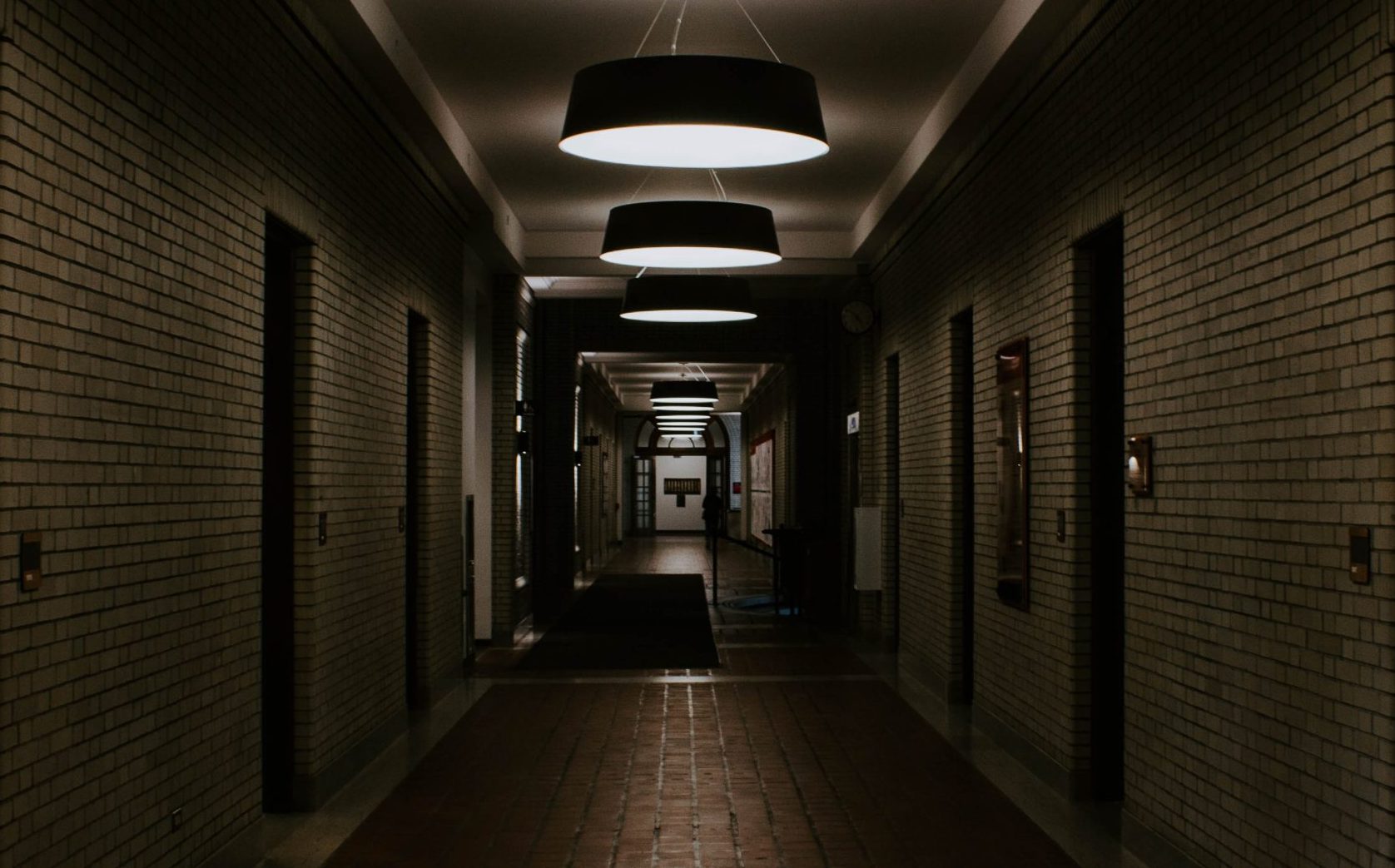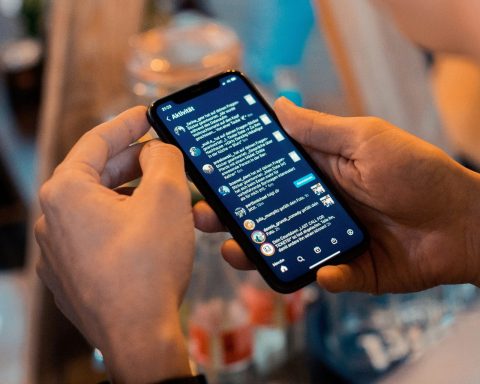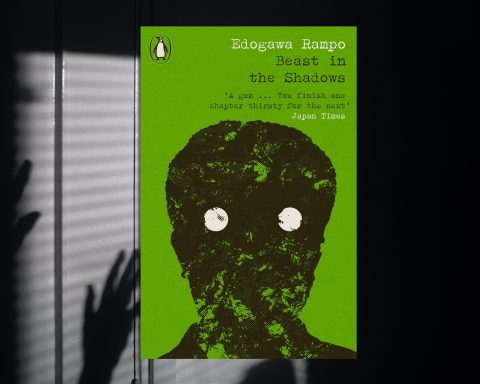 Georgia Avon is the ‘Nomme de plume’ of a London GP.*
Georgia Avon is the ‘Nomme de plume’ of a London GP.*
SATURDAY: (Dead Inside)
Recommended soundtrack: ‘Futurism’ by Muse
It was a bright hot day in September and the clocks were striking thirteen. The ceasefire had lasted seven months.
Dr Wendi Smith had been an IHP for two years (the term GP, she remembered that had previously existed, had been changed to IHP – Integrated Health Practitioner – in 2026 by the RCPHP), and she was running late for her afternoon shift following her allocated fifteen-minute lunch break; she would have to remember to clock on when she started, but with all the information overload and CIHCPs she had to do she found it difficult to remember sometimes. Her 4D computer screen was busy with numerous pop-ups and holo-prompts, and there was a large reminder for her to complete the second round of CIHCPs, (Wendi always forgot what is stood for: “Complete Integrated Health Care Plans”… That was it!), and she still had 534 to do by the end of August.
It was a bright hot day in September and the clocks were striking thirteen. The ceasefire had lasted seven months.
She saw her flatmate Hana, across the rows of computer screens, wave to her as she made her way to her cubicle.
“These care plans are a complete waste of time!” Hana whispered across to Wendi.
“Spot on!”, Wendi mouthed back to Hana
IHPs had to do three per year for all patients registered at the ICAC, and there were so many tick-box template pages on a CIHCP that Wendi had recently developed a trigger-finger; it was painful and irritating, much like the CIHCPs were. Wendi and all her flatmates thought that the “CHIPS” (as they called them), were of no actual value or help to the clients, just a data gathering, tick box exercise used to justify the strategies and decisions of the ICGs (Integrated Care Groups), but IHP pay was linked to the number of CIHCPs completed, so she felt powerless to do anything: the local ICMRG would soon be sending her those annoying automated reminder messages if she didn’t get cracking with them, and she was already struggling to pay her rent as it was.
Seamus had told her that the ICMRG – “Integrated Care Management Reference Group” – was a management tier below the ICG, and he also had mentioned that they were the so called “performance management” arm of the ICGs and were made up of what previously were called PCNs, – or Primary Care Networks – which then all merged to form the ICMRGs in the mid-2020s. Wendi thought is sounded needlessly complicated and management-heavy, but felt it was all so far out of her, or any of her fellow IHPs, influence or control.
Wendi’s friend Seamus was a retired GP, who also lived in her apartment block, Endeavour Mansions, had explained to her recently over a coffee, what had happened in the early 2020s:
“What was it like then, Seamus, before the ICACs and the formation of the ICGs?” Wendi asked.
“Well…” said Seamus in his soothing Northern Irish accent, “GPs could have chats with patients, ask them how they were and even ask how their family were, and generally GPs worked in smaller practices rather than the huge warehouse-like ICACs. There would be time for lunch and coffee and actually it was lovely and friendly. We did home visits for vulnerable and elderly patients and there were none of these care plans that you lot have to do, and you know what, it was a great and worthwhile job…”
This seemed completely inconceivable to Wendi as she silently stared at Seamus in disbelief.
“What you mean you saw most patients in person, and could actually chat to them face to face, and you didn’t have to worry about filling in pages and pages of useless data?” Wendi asked. All of Wendi’s consultations with clients were now over just phone and holo-video in the ICAC.
“Yep…” said Seamus sadly
They still called themselves doctors though, even though many of them hadn’t seen a client in years.
Seamus carried on, as he stroked his grey beard and sipped his double expresso.
“When the ICSs agreed with Chase, when he became Prime Minister in 2025 to move the new IHPs, to the call centres, or ICACs, this all stopped, and many of the so called “pre-2026” GPs then retired, myself included.”
Seamus outlined a brief history of what had happened in the 2020s: the Integrated Care Assessment Centres, or “CACs” as Seamus preferred calling them, had started around the end of the 2020-2024 Covid-19 pandemic, and eventually became more and more common around the country as the smaller practices all gradually closed down. Most of the ICACs were now privately owned by big healthcare companies and insurers, and Seamus explained that it was the profit motive that drove these companies. There had been a few government-owned ICACs, but there weren’t many now: the ICAC where Wendi worked, in St Stephen’s square, had just been taken over by a company called “FT Medical Services”; the ICAC in North London, where Wendi used to live was run by a group called “Serendipity”, and there was another called “Triangle Health” that owned a lot of the ICACs. When the digital health bubble completely burst in 2025 – triggered by the huge digital opiate and gabapentinoid prescribing scandal – a lot of the digi-health entrepreneurs ventured into the ICAC tendering: these companies were run by a board of directors and had a reputation for running the centre with minimum staff and costs. The directors themselves, Wendi had heard had recently approved a pay-rise for themselves and many now had huge salaries: some of the directors had used to be GPs years ago, but had stopped seeing patients almost completely when the IHP changes came in. They still called themselves doctors though, even though many of them hadn’t seen a client in years.
Seamus continued, and Wendi noticed that he was getting visibly emotional as he went on.
“ICACs were initially trialled in Northern Ireland and Scotland” he growled, “but then went all across the UK (pre – Scottish Independence) in the early 2020s. Small pre-2026 GP-owned and leased practices folded at this time, when the government stopped paying the rentals for leases, as the rents had gone sky high due to struggling landlords due to the Covid-19 pandemic and the Brexit stagflation “
Between 2013-2025, Seamus explained, there had also been entities known at “GP Super-Practices”, but in 2025 most of them folded due to multiple unlimited joint and several liability actions against them and the individual GP partners in them. The virtual court cases, costs and legal fees and huge amounts of money liable apparently was still ongoing years later, unresolved.
Super-practices no longer existed and some other digital firms also went spectacularly bust in the mid- 2020s, taking down some GP practices with them – this was called the “The digital health bubble” Seamus explained, as he slowly finished his coffee. There was a name beginning with a “B”, or was it a “P”, that Seamus mentioned, but Wendi couldn’t quite hear the name…
…As she remembered her chat with Seamus from the previous week, Wendi sat staring at her computer screen and looked around at the row upon row of other IHPs that sat around her, headsets on and glued to their computer and video screens. She could just about see her flatmates, Hana, Niva, and Rula, all hard at work on the other side of the warehouse building.
They lived together in a small flat in Endeavour mansions, not far from the ICAC. Wendi was lucky with her flatmates: they were kind and lovely, and cared about the clients, unlike some of the other IHPs who worked there.
The ICG newspeak suddenly flashed up on her screen with the news that that the head of the ICG had just been made a ‘Lord’. ‘Very well deserved,’ thought Wendi.
Wendi got ready to start her afternoon. She looked at the 94 clients on her 12-hour afternoon shift, out of which 80 had been booked automatically by the AIIBS. The AIIBS was the new Artificial Intelligence Integrated Booking System– this directly booked appointments for clients, without a human triage, but it was notorious amongst IHPs for getting things completely wrong and making decisions that made absolutely no common sense. Wendi thought it was totally useless. All the appointments on her list were for TAs (phone assessment), HVAs (holo-video assessments), and CICHPs
Wendi suddenly felt a wave of utter despair flow over her, with the realisation that this would be her working life over the next few decades. Apparently the ‘Lord’ in charge of the ICG used to be a GP or hospital consultant (she couldn’t remember) had used to see clients (or patients as they used to be known), many years ago, but since the board re-structuring back in 2024 he had stopped; Wendi wondered how he would fare working in the ICAC… Wendi herself though felt only dead inside.
Suddenly an automated instant message from the ICMRG appeared and then just as quickly disappeared on her computer screen, informing her that she was late in phoning her first client, and she soon realised that the clocks were soon going to strike fourteen; she had been daydreaming of what Seamus had been telling her.
Wendi picked up the phone and read out the number, and the computer link appeared and connected with the client:
“Hello it’s Wendi Smith here, IHP Practitioner: How may I help you today Madam?”
Recommended soundtrack: ‘Dead Inside’ by Muse
SUNDAY: (Mercy)
As she put her hand to the doorknob, Wendi saw that she had left her H-phone open on the table in the ICAC canteen, known by the IHPs as ‘Café 101.’ She had just finished her evening meal (a not very appetising piece of cabbage and cheese quiche, which was about the only choice available, such were the Brexit shortages) and she’d rushed out of it quickly to get back to her cubicle so that she wouldn’t be late to start her 18:00 – 06:00 shift.
The screensaver on her H-phone had a cartoon of Prime Minister Morningbird, with a picture of someone wearing a Guido Fawkes mask exclaiming “Enough!”, in big letters. In the cartoon, Prime Minister Bird, didn’t have a moustache, and Wendi thought it made him look younger. Apparently he didn’t have a moustache when he started in politics, but grew one soon after he had his second hair transplant in 2028, or so the Daily Echo online said. DEO now dominated the national news agenda since the BBC was broken up for piecemeal sale in 2027. The end of the BBC had followed swiftly after Scottish independence and the re-unification of Ireland.
If he had seen the picture on her H-phone, Wendi’s IHP job would have been toast.
Wendi could get in big trouble for her ‘unpatriotic’ screensaver. She would be reported to the ICG board and face disciplinary action if someone found out. She quickly went over to the table and picked up her H-phone. At the same time, Gareth, one of the ICAC managers, walked in. Wendi was lucky, as he was known to be duplicitous, had a direct line to the ICG hierarchy, and was desperate to get onto the ICMRG board: he didn’t like and wasn’t good at seeing clients, even though he was a qualified pre-2026 GP. If he had seen the picture on her H-phone, Wendi’s IHP job would have been toast. As much as Wendi didn’t like the work in the ICAC, she didn’t want to join the six million others who were having to work for next to nothing on the PRRS – the “Pandemic Recession Recovery Scheme” – the failing Government scheme to get people back to work during the ongoing recession since 2023
England and Wales had been in recession since the pandemic, and there was no sign of abatement. Even the E&W government, with the manipulation of the figures that Wendi suspected was happening, could not deny that the situation was terrible. The USE (formerly know at the EU), was doing comparatively well, and some of its states like Denmark and Germany had near zero unemployment and booming economies. This wasn’t reported in the E&W media, but Wendi occasionally looked at some of the blacklisted USE news outlets.
Even Scotland was also still in recession, despite President Fish saying things would “brighten up significantly” when Scotland became independent in 2025. The SNP had been in power for over 20 years, and no-one could now really remember what it was like before then or whether things were better or worse. Most people just wanted a roof over their head, food on the table and Netflix, and had lost interest in nationalism and politics.
Wendi’s friend Seamus had taken early retirement when all the Integrated Care changes happened, although he still seemed to miss what he talked about “the old days” of being a GP, prior to the introduction of IHPs, ICGs and ICACs. Wendi of course didn’t know anything different.
Seamus called himself a real “pre-2026” GP from (old) Northern Ireland, the current Irish province of Ulster, but now lived in London. He lived in the same apartment block as Wendi, and they met up for chats over coffee, when they had time.
Wendi made her way back to her cubicle and was mentally trying to get ready for her 12-hour shift; she didn’t want to be late again. She could see the unsmiling face of Gareth, the ICAC manager and IHP handler looking at her, and pointedly looking at his watch and looking at her again.
“Get back to work!”, Wendi though she heard him say, menacingly, under his breath. She couldn’t afford to be late she was only just about making her rental payments at the moment.
Wendi, settled down in her cubicle, looked at the screen – there were only 81 clients on the list so far – clicked on the holo-prompt and took a deep breath as the screen connected to the first client on her list.
As she did this, she noticed someone she hadn’t seen before out of the window-slit; a new ICAC worker, she thought. “I should be thankful for small mercies,” Wendi mused to herself “I wonder what he’ll be like?”, she whispered under her breath.
Recommended soundtrack: ‘Mercy’ by Muse
Wednesday (Reapers)
The new IHP at the ICAC was called Peter. He had long dark hair, stubble, a lovely smile and Wendi liked him immediately.
The new IHP at the ICAC was called Peter. He had long dark hair, stubble, a lovely smile and Wendi liked him immediately. He has been one of the last IHPs to actually go to medical school and qualify as a GP before the IHP qualifications changed in 2026, meaning that you didn’t have to go to medical school to become an IHP. This had caused a lot of controversy at the time, and many were unhappy about it, but (with the government’s backing) the ICGs pushed it through on the pretext that there weren’t enough GPs at the time and “something had to be done” about it. One effect of this was that the pre-2026 GPs kept on getting asked to review patients already seen by the other IHPs, and so that meant they were doubly busy, as they had to do this as well as seeing their own patients in the allotted time. “The worst of both bloody worlds” as Seamus had wryly commented to Wendi once when they were having one of their regular meet-ups over coffee.
Peter was great though: kind, lovely, great with patients (even over HVAs and TAs), and it was clear Gareth hated him immediately, which was a sure sign that there must be something right about him; maybe he was jealous.
Peter managed to somehow get through his list of patients really quickly, sending off EPS like electronic reaper drones blasting and swerving through pharmaceutical cyberspace, into digi- pharmacies all across London, and then the medication was delivered by actual drone from the pharma-depots . He even caught up with Wendi, Hana , Niva and Rula when they had their lunchbreak, despite starting his shift after them.
They met at the café 101 for lunch.
“How are you liking it here at the ICAC?” Hana asked Peter with a slight, amused, smile on her face as she asked.
“Oh God, terrible isn’t it?”, exclaimed Peter. “I never imagined when I was at medical school, and doing my GP training that I would end up like this. I’d get out if I could, but I’m not really trained for anything else, and there aren’t exactly many other jobs around.”
Hana, Niva, Rula and Wendi all nodded in agreement silently, as Peter said this.
The job of being a GP about twenty years ago sounded fantastic, at least from what Seamus told them, but they had been reduced to mechanistic, algorithmic, “slave-drones”, (again a Seamus-ism), with little autonomy, and under the direct performance-managing gaze and control of Gareth, the ICMRG and the ICG, the rest of the NHS managerial classes and the NHSE@DOH
“Totally grim…” Niva whispered, again the rest of them nodding as they finished off their lunch.
“…both the lunch and the job!”, Niva added, laughing
“They call it the ‘boiling frog’ syndrome” said Rula. Rula had an interest in “burnout” and trauma in health workers, and the psychology of this, and had done a lot of work and study of this following the Covid-19 pandemic.
“But I’m not sure we can do much about it can we?” exclaimed Wendi in exasperation.
“No, not much probably…” agreed Peter
Gareth appeared at the canteen door, looking at the group as they were finishing their lunch. He started tapping his watch, and clearing his throat.
“Ok, back to work now” Gareth shouted across the canteen.
Gareth fixed the group with an icy stare, and again exclaimed “Get back to work now!”, shouting loudly across the canteen.
Hana, Wendi, Niva, Rula and Peter got up from their chairs and slowly wandered back towards the door and entrance to the ICAC atrium. As they passed Gareth, he muttered to them that they should “pull their socks up”, but as he was doing this a big goblet of spittle came out of his mouth and landed on Peter’s cheek.
“Thanks”, Peter said sarcastically. “You’d have been arrested for that during the pandemic!” Peter said trying to make a joke. It fell on deaf ears with Gareth.
“Don’t you dare…” Gareth started, but by that time the group were out of earshot and making their way to their cubicles ready to re-start their shifts.
“Well…have a good one, hope you enjoy the shift” Peter said, keeping his sarcastic tone
“Yeah…right!” Wendi, Rula, Niva and Hana said back in unison, laughing. “As if!”
It was going to be a long fourteen hours…
Recommended soundtrack: ‘Reapers’ by Muse
*Name and address supplied to the BJGP team
‘Narrator’ Photo by Christian Holzinger on Unsplash
Featured Photo by Aditya Vyas on Unsplash






